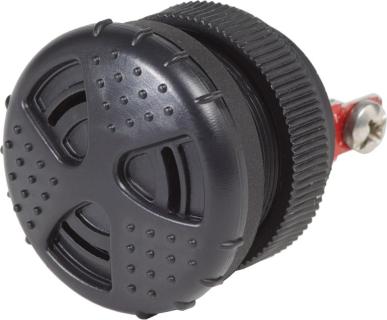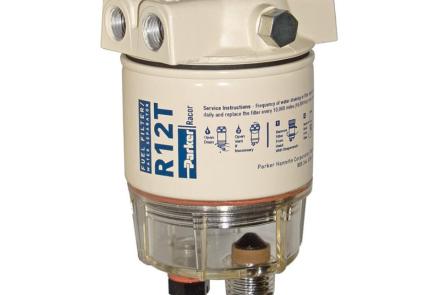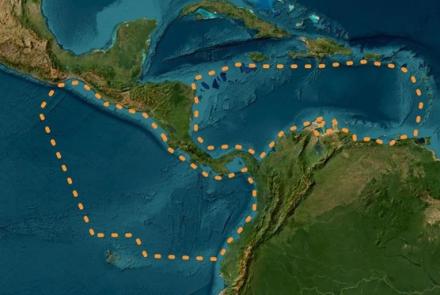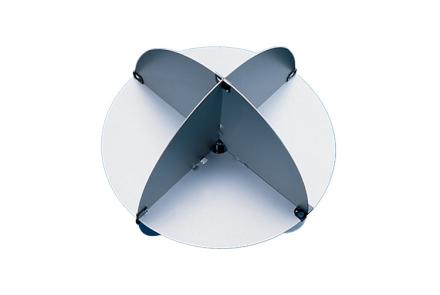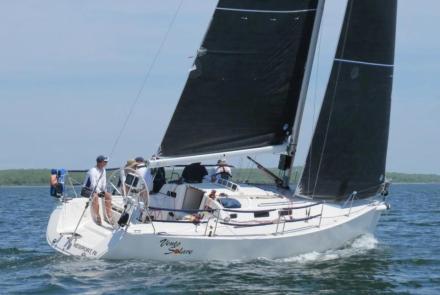Early Warning Systems
By Dick Stevenson,New York Station, s/v Alchemy
I do not think about alarms and early warning systems too often: they just exist and are largely ignored, until... Every now and again one really makes a difference in my cruising life, so I cobbled together this list. I am sure I missed a few.
I would suggest that there should be a handful of audible early warning systems on every boat. This goes especially for recreational skippers and even more so for those who sail as a passage-making couple. The benefits of early warning do not always jump out at you. Many of the following early warning systems are warnings where vessel integrity and crew safety are at risk. Those are urgent and must be attended to. Others are warnings that can be dealt with in a more leisurely manner.
An early warning puts skipper and crew in a pro-active position rather than reacting to, say, the floorboards being awash where it is likely already too late to enact a remedy. Some early warnings are crucial (propane leak) while others are a flag to attend to something later (slow leak of coolant). But to be effective, early warnings must allow for remedies and intervention when the intervention can still make a difference. A few minutes of early warning can be the difference between saving the ship or abandoning her. Early warning allows a period of thinking rather than a quick journey into panic. Many emergencies on board escalate quickly. Many can be easily dealt with at their onset but, if let go even for a short period, they can quickly become unworkable. Early intervention makes a huge difference.
Notes:
All audible alarms should be loud enough to give warning to crew in the cockpit when the motor is operating. In the scheme of things, these units are not expensive nor do they demand much in the way of battery usage to run 24/7 (some run on their own 9v battery).
I have found none of the alarms listed below to be prone to false reports. The smoke detector will occasionally get activated when cooking bacon. High water alarms get a test when the water tanks are over-filled and water comes out of the breathing tube. I worried that our smoke detector in the engine room would give a lot of false positives, but its only initially unexplained activation was quickly revealed to be a loose and slipping fan belt that produced a bit of friction induced smoke.
Early warning systems on Alchemy using alarms:
In my opinion, these alarms should be included in the initial design and should be installed by the factory when installation is easier. If, like most boats, they are missing, I would suggest every skipper consider installing these alarms.
- Smoke detectors: 3 altogether: engine room, above electrical panel and in the forepeak (sleeping) cabin. (modern units can be interconnected)
- High water alarms: Alchemy has two; one in each of her isolated bilge areas.
- Propane gas detectors: Alchemy has two; one in each of her isolated bilge areas.
- Bilge pump alarm: every activation of the bilge pump.
- Diesel and generator alarms: oil pressure and temperature (alarms rather than idiot lights).
- Raw water failure alarm (Borel) on engine and genset.
- Dedicated CO detector (CG required, I believe)(extra protection can be had by combination smoke and CO detectors)
One unplanned “alarm” has turned out to be quite helpful. I have never completely tamed the lines that raise and lower my pole on the mast, though they are tied off. When the wind hits 20-25 knots when at anchor, they slap the mast. This is my wake-up call to check things out.
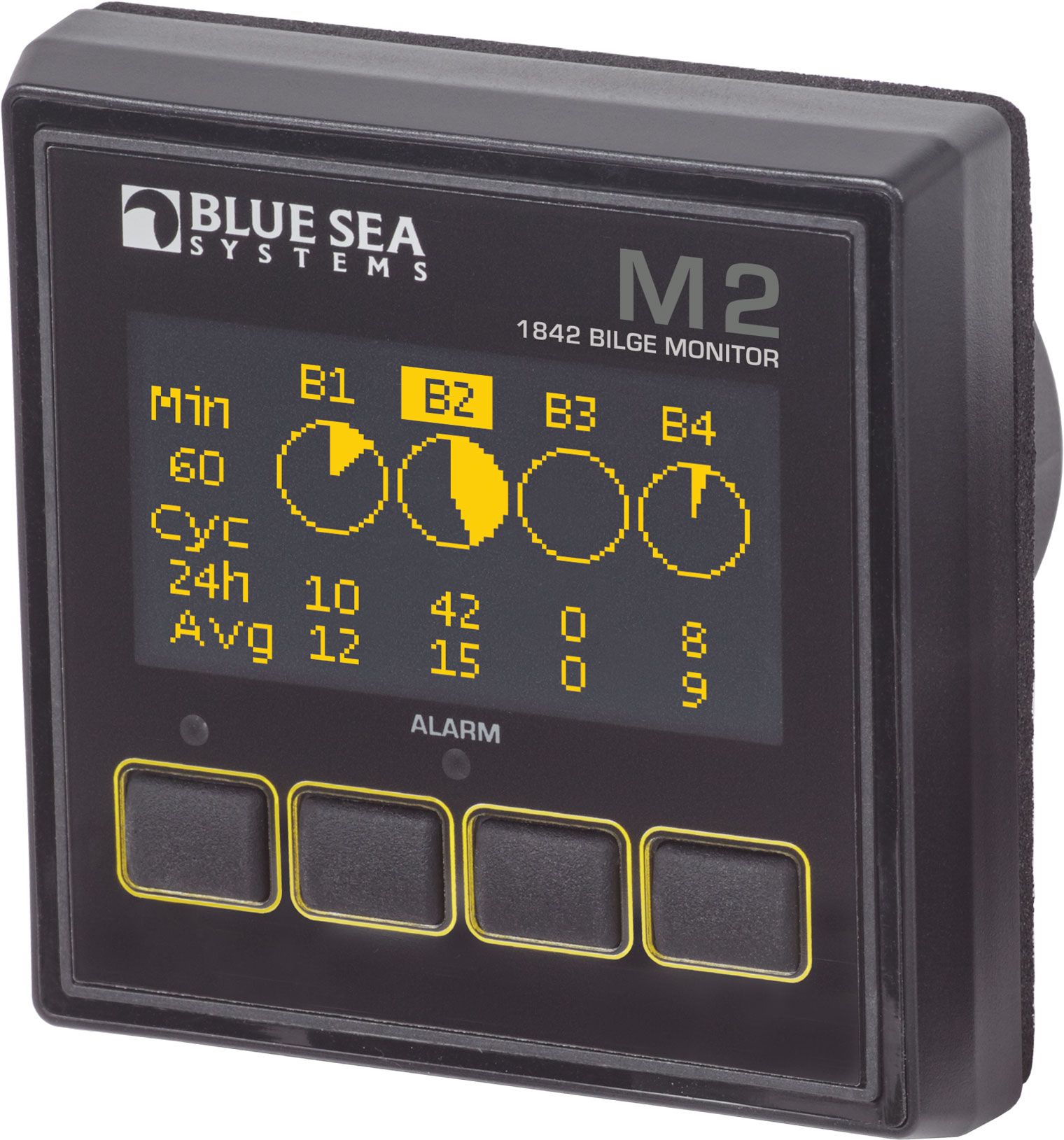
This bilge pump monitor and alarm can alert you to problems
Early warning systems requiring inspection:
- I have installed a small dam downstream from the engine and genset where any leaked fluids accumulate: a quick opening of the over-the-engine access hatch allows a look. A few drips of oil or coolant can go un-noticed if lost in the bilge: a dam allows these few drops to be immediately seen and remedies can be taken. This dam will accumulate a cup or two of liquid (oil, coolant etc.) which is easy to then clean. If it gets into the bilge, it becomes much harder to clean and may accidentally get pumped overboard.
- A similar early warning result might be achieved with a nice new white oil absorber pad placed strategically under the engine: any oil, diesel, coolant or raw water leaks are quickly revealed. And the pad may indicate where on the engine the leaks are coming from.
- My dual Racor filter assembly has a vacuum gauge which can give early warning of filters becoming clogged and blocking/slowing fuel delivery to the engine and of other forms of fuel constriction. Some have a sensor which indicates when there is water in the fuel. I highly recommend this setup.
- An excellent article on the vacuum gauge can be found at https://stevedmarineconsulting.com/the-invaluable-vacuum-gauge-editorial-my-kingdom-for-a-set-screw/.
- The double filter also allows a filter change at the flip of a valve and makes swapping in a new filter easy and mess-free and not demanding bleeding the engine.
- An excellent article on the vacuum gauge can be found at https://stevedmarineconsulting.com/the-invaluable-vacuum-gauge-editorial-my-kingdom-for-a-set-screw/.
- One’s senses: especially ears. Pay attention to new noises/smells etc. and changes in regular noise and track them down. Also, keep one’s eyes open and ask the crew to do likewise. Never let a random screw/bolt etc. discovered on deck go un-explained. Eyes should be looking for early warning indications during every sweep of the horizon.
I do not have (or use) but perhaps I should:
- A low and high voltage alarm for your battery bank. Can alert you to two of the primary causes of early battery failure.
- A State Of Charge (SOC) alarm to tell me when to charge the batteries, or to figure out which load is depleting the batteries unexpectedly.
Various skipper-determined instrument alarms: AIS, radar, depth, anchor, etc.
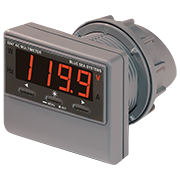
Power monitor
Caveats:
Alarms are a good thing. They warn of emerging problems and they do not get tired or lazy.
That said, I think it is clear we have many alarms and that when one goes off, it is hard to remember what the warning is or where to go to respond. Someday, an enterprising entrepreneur will come up with an alarm annunciator; in the meantime, it behooves every skipper to make a “vessel alarm list” and to try to differentiate the alarms by sound (buzzer, beep, two-tone, etc.)
Then, highlight the “urgent” alarms. On Alchemy these are:
- engine oil pressure & water temperature & exhaust hose temperature
- high water, bilge pump activation
- propane sniffer
- smoke and CO detectors
Then there are the skipper-set alarms on AIS, radar, instruments and the DSC alarm on your VHF. And finally, there are the alarms that emerge from our “devices”. Post this list where it is easily accessible to remind/review (wall of the “reading room”/head, for example).
One danger with alarms is that they can support a false complacency that inhibits regular inspections. For example, a regular eyes-doing-a-horizon sweep on passage should not be replaced by an AIS or radar alarm. Also, a reminder: many alarms need maintenance. Some beep when batteries are low: some do not. A beginning-of-season renewal of all alarm batteries is wise, as well as “forcing” the alarms to sound off to make sure they are working. Other alarms have expiry dates (hard-wired CO alarms are often 5 years) while smoke detectors can malfunction because of accumulations of dust or cobwebs. One’s confidence in propane sniffers increases when it activates when tested with gas from an (unlit) BBQ-type lighter aimed into the sensor.
Examples of alarms making a difference:
- Bilge pump activation alarm sounded. Not a boat leak but a slow but steady drip in the fresh water plumbing. Catching early meant only a few gallons of water lost.
- I noticed increasing pressure on the vacuum gauge on the feed side of the fuel system. It turned out that an errant line had inadvertently caught around a fuel feed valve and had partially closed the valve causing constriction, but not shutting down the engine. Might have given problems if the engine had been needed at higher RPMs.
- The bilge pump activation alarm was really useful when a bilge discharge hose started back-siphoning (no vented loop and the exit point was underwater as we were well heeled over).
Further reading:
“Flooding: Preparing for and Dealing with a Sinking Ship” can be found in the CCA web site under “Safety and Seamanship”.
The Cruising Club of America is a collection of accomplished ocean sailors having extensive boat handling, seamanship, and command experience honed over many years. “Feature Articles” are written by CCA members who can be found in ports all over the U.S., Canada or Bermuda. Many of them are CCA members at large. Feature Articles are published by the CCA Safety and Seamanship Committee and are intended to advance seamanship and safety by highlighting new technologies, suggestions for safe operation and reports of maritime disasters around the world.


